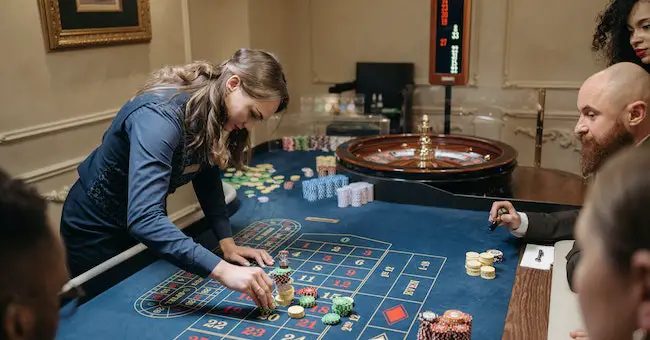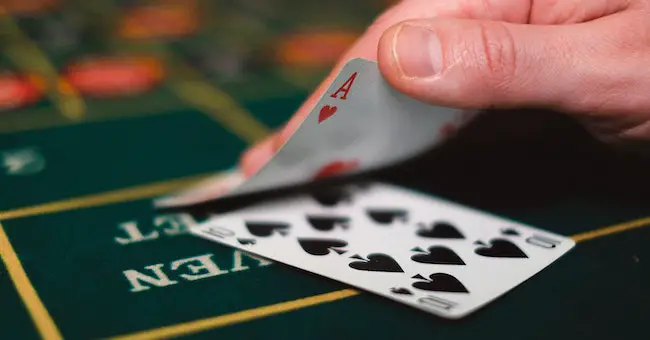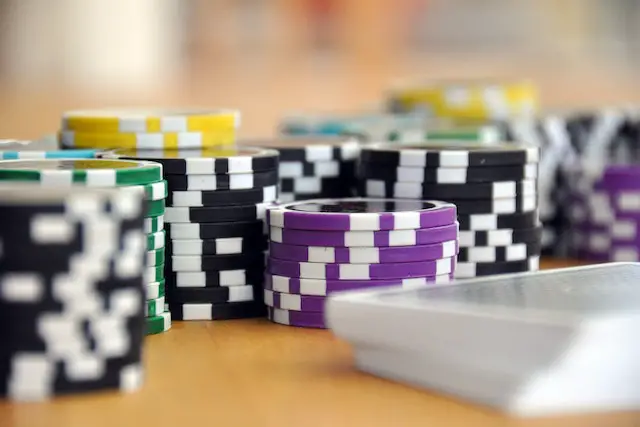How Many People Do You Need To Play Poker?
General principles. Any number of players, from 2 to 14, can play various poker games; however, in most cases, 6, 7, or 8 players are the optimum number. The goal is to get “pot.” “Pot” is the sum of all players’ bets during any game.
The Dynamics Of Poker Player Count

Poker is a well-known casino game that has been enthralling players for ages. It’s a game of strategy, skill, and luck that has attracted a diverse spectrum of players, from casual gamers to professional players who compete in high-stakes competitions. Poker’s most intriguing aspect is its dynamic nature. We will examine the many factors that affect the player count of poker players and the dynamics that influence the fluctuations of the player count.
Popularity and Accessibility: One of the major factors that impact the number of players in poker is the popularity of the game and its accessibility. When poker is on the radar and is widely praised, it attracts more players to the sport. The broadcasting of tournaments, celebrity endorsements, and the release of poker-themed films are just a few examples of the many variables that may have an impact on this. Furthermore, the accessibility to Poker has grown with the growth of online poker sites that allow players worldwide to join in. Popularity and ease of access to poker significantly attract new players and increase the player count overall.
Tournament Events: Tournaments are a different aspect that affects the number of poker players. Tournaments give players the chance to battle for huge prize pools as well as the most prestigious titles. Major tournaments such as those of the World Series of Poker (WSOP) or the European Poker Tour (EPT) typically draw a lot of players from all over the world. These events generate excitement and competitiveness, encouraging more players to participate and test their abilities. The appeal of taking part in a high-profile event can increase the number of players participating in these seasons.
Online Poker Platforms: The rise of poker sites online has transformed the game and increased its popularity and players. Online poker provides convenience and accessibility for players who do not have access to a physical poker room or prefer playing at home. These sites also offer an array of stakes, game variations, and tournaments that cater to players at all levels and playing styles. Accessibility and the capability to play at any time and from anywhere have made online poker a popular option for many players, boosting the player base.
Economic Factors: Economic factors can affect the number of players in poker, particularly during periods of stability in the economy or recessions. The population may have more cash for leisure pursuits such as poker when the economy is flourishing. This could lead to a rise in players because people seek entertainment and the possibility of winning cash. In contrast, During recessions, there is a possibility that people have less disposable income, and this can lead to an increase in the number of players since people prioritize their spending. Economic conditions play a part in determining the dynamics of the player count.
Skill and Education: Players’ skill level and education can also impact the number of players playing poker. As the game gains visibility and recognition, the players are motivated to increase their skills and know-how to compete at the highest level. This may increase player numbers as more players spend time and effort studying and practicing strategies for poker. Furthermore, the accessibility of educational materials like books, online tutorials, online courses, and coaching has increased the number of players. The search for skills and knowledge in poker continues to draw new players and alter the nature of the sport.
One-on-One: Poker In A Duel
Poker is a form of gambling that is played with several players at the table. There is, however, a distinct and thrilling variant of the game that focuses on a single-player competition referred to as a poker duel. In a duel of poker, two players compete against each other, putting to the test their strategies, skills, and mental acuity in a head-to-head match. We will look at the complexities and nuances of a poker duel and highlight the most important aspects that make it a thrilling kind of game.
Intensified Psychological Battle: In a poker duel, the psychological element of the game is heightened. With just one opponent to concentrate on, the players can focus on studying their opponent’s mannerisms, behavior, and betting habits. Every move and choice is more important, and players must understand their opponent’s actions and alter their behavior to gain an advantage. The tension of the combat is amplified as players try to deceive and gain an edge over their opponents, making poker games an exciting and thrilling experience.
Increased Focus on Individualized Strategies: In a typical multiplayer game of poker, it is common for players to adopt strategies that consider several opponents’ behaviors and habits. In a poker duel, the focus is completely on the player. Each player must adjust their game plan to take advantage of their opponent’s weaknesses while defending their own. It is crucial to modify and alter your strategy as the battle gets more intense since players have an increased ability to see and evaluate the style of play their opponents employ. The greater emphasis on individualized strategies provides a deeper strategic dimension to poker games and forces players to think differently and adapt to changes.
Enhanced Importance of Position: Position is an important factor in poker and is even more important when playing a one-on-one game. With just two players in the game, the position is rotated between the two opponents following every hand, which ensures an allocation of advantages and disadvantages. The player in the second position has a significant advantage due to their last move, which allows them to make more informed decisions by analyzing their opponent’s behavior. This causes an energizing power shift during the game, in which players have to make the most of their advantages and maneuver through the difficulties in the event of the disadvantage of their position.
Adaptability and Flexibility: Poker matches require a very high degree of flexibility and adaptability on the part of players. Adapting to various playing styles or table dynamics, as well as opponents’ strategies, is essential for winning. Players need to be able to spot patterns and weaknesses and modify their tactics to suit them. The pace of a duel could shift rapidly, so adjusting to these changes is crucial. Furthermore, players must remain calm and focused due to the stress and intensity of a duel, which could be physically taxing. The ability to think quickly and make informed choices in uncertain situations is an essential characteristic of successful duelists in poker.
Deeper Understanding of the Opponent’s Range: In a duel of poker, players are more likely to study and comprehend the opponent’s hand range. With fewer players, it is easier to identify the possible possibilities a player could hold based on their actions and betting habits. This greater knowledge of the opponent’s capabilities makes it possible for players to make more informed choices and accurately evaluate their play’s worth. This also allows skilled players to exploit their opponent’s tendency to bluff and make well-timed bets or bets on value. The ability to evaluate and exploit an opponent’s potential is vital in a poker duel.
A Small-Group Showdown: Poker With 3-6 Players

Poker is a multi-faceted card game that is played with various numbers of players. While traditional poker games usually require larger teams, playing with smaller groups of 3-6 players is a unique and enjoyable experience. We will look at the nuances and dynamics of poker in a smaller group and highlight the most important aspects that make it a fascinating and strategically-minded game.
Increased Player Interaction: One of the major benefits of playing poker in a smaller group is greater interaction between players. With fewer players, the players can have direct conversations, watch their opponents’ reactions, and establish relationships. This increased degree of interaction allows for an understanding of different players’ play styles, strategies, tactics, and even personalities. This results in a more intimate social setting that allows players to form relationships and fight, making each hand an enjoyable and unforgettable experience.
Enhanced Focus on Individual Skill: In poker games played in small groups, individual skills play an important role compared to games with a larger number of players. With fewer opponents and players, players are more likely to participate in hands and make choices. This puts more importance on the ability of each player to understand their opponents, analyze the scenario, and then make smart decisions. The effect of individual talent and decision-making gets more prominent due to no reliance upon luck and more opportunities for players to display their abilities.
Strategic Adaptation to Varying Table Dynamics: The dynamics change more quickly in a smaller group poker game than in bigger games. With fewer players, every move made will have a more immediate impact on the game. Players need to be flexible and adapt their strategies to shifting dynamics, including their rivals’ play styles and preferences. Detecting these shifts and altering your game plan accordingly is crucial to keeping an edge in the game and increasing profits.
Flexibility in Game Variation and Structure: A smaller group of 3 to 6 players allows playing with variations and structure. Although traditional poker games like Texas Hold’em are popular, smaller groups offer the opportunity to try variations like Omaha Seven-Card Stud and even mix games. Furthermore, players can experiment with various structures, like cash games, sit-and-go tournaments, or multi-table tournaments tailored to the group’s size. This flexibility lets players enjoy an individualized and diverse poker experience based on their needs and skills.
Psychological Warfare and Mind Games: With a smaller number of players, the psychology of poker becomes more significant. Players are more likely to look at their opponents, spot patterns, and exploit weaknesses. Proximity and the interaction between players can intensify the battle between players’ minds since every move and decision could have a major influence on the dynamics of the sport. Players can use mind games like strategic bluffing to trick their opponents and gain an advantage. The added psychological element provides an exhilarating aspect to the game. It requires players to navigate the maze of deceit and devise strategies to counter it.
Faster-Paced and Dynamic Gameplay: Poker games with three or more players usually feature a more rapid and exciting game. With fewer players, it is possible to play more hands per hour, which results in a more rapid game flow. The short time between hands lets players stay engaged and maintain an underlying sense of excitement. The smaller group size results in an energizing and fluid game as the game’s dynamics change every time. Players must be prepared to adapt quickly to dynamic changes and make the right decisions quickly and efficiently.
It Is The Classic Casino Game: Poker With 7-10 Players

Poker is a classic gambling game that has gained global recognition. Although it can be played with different numbers of players, a traditional poker table has 7–10 players at the table. We will explore the nuances and dynamics of poker for 7–10 players. We will also highlight the most important aspects that make it a thrilling and strategic game for casinos.
Diverse Playing Styles: The most interesting feature of poker for 7–10 players is the vast game variations that can be found. With a larger number of players, each player brings their own unique strategies and personal styles to the field. Certain players might be more aggressive, always looking for opportunities to take risks, while others may choose an empathetic and more cautious approach. The different play styles provide depth and complexity to the game, forcing players to adjust and adapt their strategies to the game’s changing dynamics.
Increased Complexity in Hand Reading: In a poker game with between 7 and 10 players, interpreting hand signals is a more complex task. With more players in the game, opponents could have a wider hand. It requires keen observation, the study of betting patterns, and deductive skills to evaluate the hand strength of the opponent. The complexity of hand reading increases as the number of players increases, making it difficult for players to make intelligent decisions using the information available.
Importance of Table Position: Table position plays a significant part in the game of poker for 7–10 players. The player’s position will determine the order in which they play and can significantly influence their decision-making process. Positions in the later stages benefit as they can gather more details about their opponents’ actions before making their own decision. In contrast, players in the earlier position have fewer factors to consider and have to make decisions based on a lack of knowledge regarding their adversaries’ motives. Knowing and using table position effectively is crucial to maximizing opportunities and reducing the risks of a more crowded setting.
Greater Potential for Bluffing and Deception: Poker with 7–10 players offers more opportunities for fraud and deceit. With more players, the possibilities for executing tactical maneuvers and mind games increase. Highly skilled players can use the increased number of players to develop more complex bluffing scenarios and alter their opponents’ perceptions. But the greater player count also implies that more people could be capable of playing bluffs, making it vital for the players to become skilled in discerning genuine from deceitful actions and adapting their strategies in line with the situation.
The Terror Of The Crowd: Poker With More Than 11 Players

Poker is a sport that has won the hearts and minds of players from all over the world. The excitement, strategy, and skills needed to be successful at poker make it a thrilling and exciting game. Although traditional poker games usually have fewer players, playing with more than 11 players can add a thrilling new dimension to the game. We will examine the unique challenges and advantages of playing poker with more players and how it can be an exciting experience.
Increased Competition
When there are more than 11 players at the table, the intensity of competition rises dramatically. With many players, you’ll have more skilled players to compete with, with every one of them bringing different strategies as well as styles to the table. That means you’ll have to stay at the top of your game when analyzing the movements and strategies of several players at the same time. The increased levels of competition can be an excellent incentive to increase your knowledge and make better decisions.
In addition, the larger player pool also expands the range of play styles you’ll come across. You’ll encounter aggressive players who want to be dominant at the table, prudent people with their bets, and all the rest. The ability to adapt to different play styles and adapt your strategy accordingly is vital when playing with hundreds of players.
Expanded Range of Hands
With more players at the table, the variety of possible hands increases. This means you’ll have a greater variety of hands that you can start with, and the value of some hands could be altered. Hands that are generally considered strong in a small game, such as pocket aces and kings, might not be as good when there are a lot of players. The chances of another player holding a strong hand increase, so it’s important to evaluate your hand’s strength and alter your betting in line with the results.
Furthermore, playing with more players could result in greater multi-way pots. Because players tend to place bets that cover more players, it is more difficult to narrow the opponent’s hand. This adds a sense of unpredictability to the game. It requires a more careful approach to making decisions.
Psychological Warfare
The psychological element is more apparent when playing poker with a larger number of players. With so many players, there are many personalities to observe and play with. Awareness of your opponent’s behavior, such as facial expressions and betting habits, can give useful information about their hand strength and motives. In addition, the larger player pool creates a lively environment where deceit and bluffing become more common.
Engaging in mind games with a variety of players can be challenging as well as thrilling. Knowing and correctly assessing your opponents’ behaviors could give you a substantial advantage. Be aware that when there are more players, the possibility of someone trying to beat you increases. There is a delicate balance between deceit and awareness of possible traps your adversaries may lay.
Social Interaction
When playing poker with more than 11 players, there can be a sense of social interaction that could improve the overall experience. The bigger crowd can create a more lively atmosphere that allows for more interactions and conversations. Meeting new people, sharing strategies, and engaging in friendly conversation is possible. The part about playing with friends could enhance the fun and enjoyment of the game.
Furthermore, a bigger poker game is often the cause of the creation of rivalries and alliances. The players may form teams to defeat some opponents or even choose to target individuals they perceive to be a threat. These interactions create a feeling of camaraderie or rivalry among players, encouraging an atmosphere of unity in the game.
FAQ’s
Do you want to be a poker player with two people?
Basics of Texas Hold’em Poker There are some basic rules to Texas Hold’em. A standard 52-card deck is used for the game, which can be played by two to ten players. The goal is to create the best possible hand of five cards with any combination of the players’ two-hole cards and five common cards.
Are four players enough to play poker?
The number 6-7 is the most desirable. A mere five or fewer people can be boring and repetitive. More than seven players create confusion and slow things down. However, it is a great number if you’re playing a variant of poker, such as Omaha or even 5.
What is “two-card poker” known as?
Texas Hold’em (also called Texas Hold’em or Holdem) is among the most popular variations of the card game poker. Two cards, also known as hole cards, are dealt face-down to each player, and five common cards will be dealt face-up in three phases.
How many people can be poker players?
General principles. Different forms of poker are suitable for any number of players ranging from two to fourteen, but generally, the ideal number is six, seven, or eight players. The goal is to win the “pot,” which is the sum of all bets placed by the players involved in one game.
Can poker be played with more than ten players?
Yes, poker can be played with more than ten players. However, in such cases, it may be necessary to use multiple decks of cards, as a single deck may not have enough cards to accommodate everyone.
Can poker be played with just two players?
Yes, poker can be played with just two players. This is known as a heads-up game and can be played in various poker variants. Some players even prefer heads-up games for their intense one-on-one competition.

















